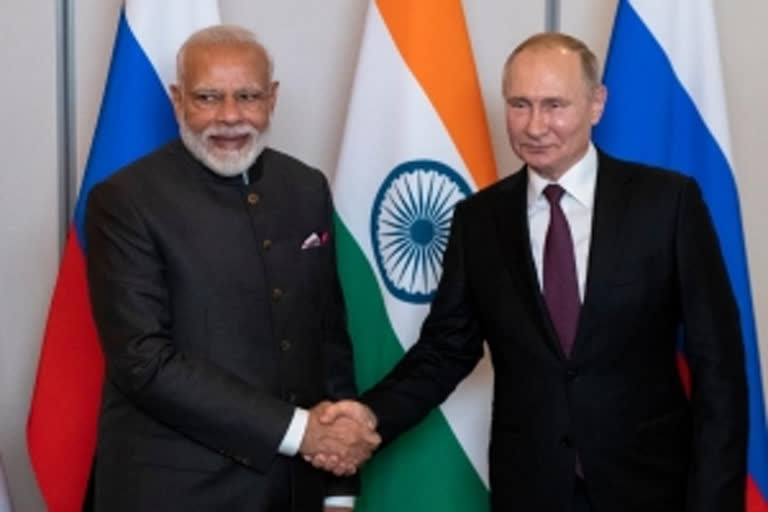New Delhi: India figures prominently in a top-secret Russian plan that was approved by President Vladimir Putin on November 13 that lays down ways on how Russia will face external and internal challenges in the 2021-2025 period.
The plan is to get activated from January 1, 2021.
India’s growing problems with China and the opportunity it may yield to Russia to mediate is part of five key aims that have been included in the plan Russia has devised for itself for 2021-25, a member of the public council under the Russian defence ministry has written in a Russian daily ‘Komsomolskaya Pravda’.
The article by Viktor Baranets, also an acknowledged Russian military observer, says Russia has plans “to enhance its role as a peace broker in major confrontations in Eurasia (Chinese-Indian and Indian-Pakistani conflicts) as a means to boost the country’s international image and prestige”.
Such perspective plans have been prepared by the Russian government since 1996 when the “Federal Law on Defense” was passed by the Duma on April 24, 1996. While such plans are acknowledged, the contents have the highest level of classification and remain state secrets.
Amid the ensuing India-China military standoff in eastern Ladakh, the Russian moves have been apparent yet an exercise in subtlety.
While the India-China border military crisis began in April-May, the Russian moves began on June 24 when India’s defence minister Rajnath Singh was seated not far from Chinese defence minister Wei Fenghe in the iconic Red Square in Moscow during the Victory Parade, with Russian defence minister Sergey Shoigu sitting close by.
There were already whispers then about how Russia was slipping into a mediator’s role between the two Asian giants.
And in two days, foreign ministers S Jaishankar of India and Wang Yi of China met over a virtual conference of the Russia-India-China (RIC) trilateral.
But it was just the beginning. A slew of meetings where top leaders of the three countries have been represented have followed.
Besides RIC, the three countries are active participants in prominent multilateral platforms like the BRICS (Brazil, Russia, India, China, South Africa) and the Shanghai Organisation Cooperation (SCO) that are increasingly getting prominent.
In many ways, Russia would be the natural mediator if there is such a role.
It enjoys the trust of India and China and shares close relationships with both. Besides strong bilateral ties, Russia supplies advanced weaponry like the S-400 air defence system to both countries.
An acceptance of Russian mediation by India and China would be of immense significance particularly after both the belligerent neighbours turned down an unsolicited mediation offer by outgoing US President Donald Trump.




